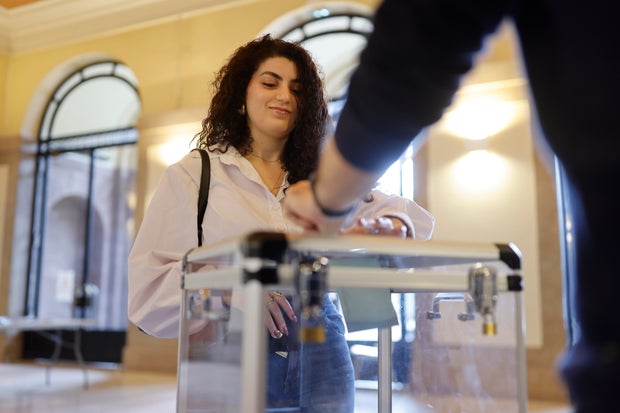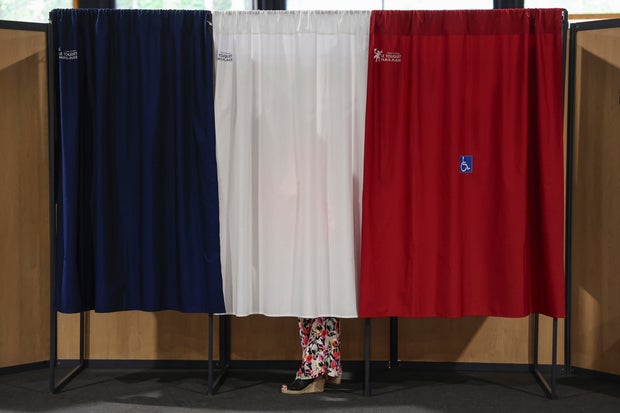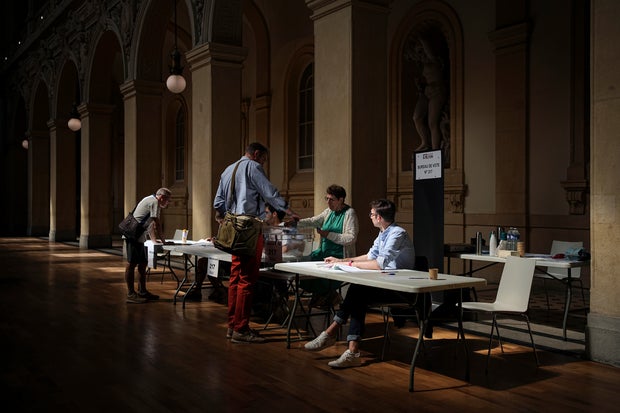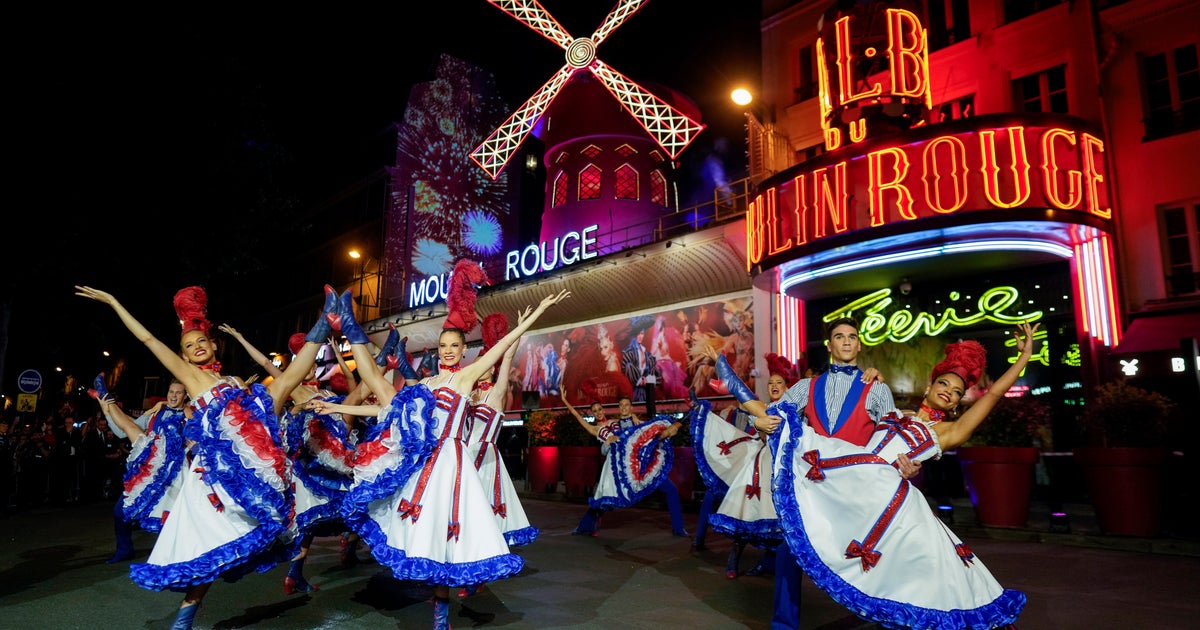French leftists coalition projected to win most seats in pivotal legislative elections
An unusually high turnout of voters spelled the end of the French far right's dream of taking power in the legislature.
A coalition on the left that came together unexpectedly ahead of France's snap election won the most parliamentary seats in the vote, according to early projections. The surprising result put President Emmanuel Macron's centrist alliance in second and the far right dropped to third place.
With no party having the outright majority, France is likely heading to a coalition government, plunging France into political and economic turmoil.
Final results are not expected until late Sunday or early Monday in the highly volatile snap election, which was called just four weeks ago in a huge gamble for Macron.
The deeply unpopular president took a huge gamble in dissolving parliament and calling for the elections after his centrists were trounced in European elections on June 9.
The snap elections in this nuclear-armed nation will influence the war in Ukraine, global diplomacy and Europe's economic stability, and they're almost certain to undercut Macron for the remaining three years of his presidency.
It does not appear to have paid off for the deeply unpopular president, whose alliance has lost control of parliament, according to the projections. Marine Le Pen's far right greatly increased the number of seats it holds, meanwhile, but fell far short of expectations.
France now faces the prospect of weeks of political machinations to determine who will be prime minister and lead the National Assembly. And Macron faces the prospect of leading the country alongside a prime minister opposed to most of his domestic policies.
French leftist leader Jean-Luc Mélenchon called the projections an "immense relief for a majority of people in our country" and he demanded the resignation of the prime minister. Mélenchon is the most prominent of the leftist leaders who unexpectedly came together ahead of the two-round elections.
The projections, if confirmed by official counts, will spell intense uncertainty for a pillar of the European Union and its second-largest economy, with no clarity about who might partner with Macron as prime minister in governing France. He faces the prospect of leading the country alongside a prime minister opposed to most of his domestic policies.
French Prime Minister Gabriel Attal said he would resign but also that he would remain on an interim basis during the Olympics or for as long as needed, given that there could be weeks of negotiations to choose a new premier.
In a statement from his office, Macron indicated that he wouldn't be rushed into inviting a potential prime minister to form a government. It said he was watching as results come in and would wait for the new National Assembly to take shape before taking "the necessary decisions," all while respecting "the sovereign choice of the French."
A hung parliament with no single bloc coming close to getting the 289 seats needed for an absolute majority in the National Assembly, the more powerful of France's two legislative chambers, would be unknown territory for modern France.
Unlike other countries in Europe that are more accustomed to coalition governments, France doesn't have a tradition of lawmakers from rival political camps coming together to form a working majority.
Voters at a Paris polling station were acutely aware of the far-reaching consequences for France and beyond.
"The individual freedoms, tolerance and respect for others is what at stake today," said Thomas Bertrand, a 45-year-old voter who works in advertising.
Racism and antisemitism have marred the electoral campaign, along with Russian cybercampaigns, and more than 50 candidates reported being physically attacked — highly unusual for France. The government deployed 30,000 police on voting day.
The heightened tensions come while France is celebrating a very special summer: Paris is about to host exceptionally ambitious Olympic Games, the national soccer team reached the semifinal of the Euro 2024 championship, and the Tour de France is racing around the country alongside the Olympic torch.
Reflecting the high stakes, people turned out in large numbers not normally seen for a legislative election, after decades of deepening voter apathy for such votes and, for a growing number of French people, politics in general. As of 5 p.m. local time, turnout was at 59.7%, according to France's Interior Ministry, the highest at that time in the voting day since 1981. During the first round, the nearly 67% turnout was the highest since 1997.
Pierre Lubin, a 45-year-old business manager, was worried about whether the elections would produce an effective government.
"This is a concern for us," Lubin said. "Will it be a technical government or a coalition government made up of (various) political forces?"
No matter what happens, Macron's centrist camp will be forced to share power. Many of his alliances' candidates lost in the first round or withdrew, meaning it doesn't have enough people running to come anywhere close to the majority he had in 2017 when he was was first elected president, or the plurality he got in the 2022 legislative vote.
Both would be unprecedented for modern France, and make it more difficult for the European Union's No. 2 economy to make bold decisions on arming Ukraine, reforming labor laws or reducing its huge deficit. Financial markets have been jittery since Macron surprised even his closest allies in June by announcing snap elections after the National Rally won the most seats for France in European Parliament elections.
Regardless of what happens, Macron said he won't step down and will stay president until his term ends in 2027.
Many French voters, especially in small towns and rural areas, are frustrated with low incomes and a Paris political leadership seen as elitist and unconcerned with workers' day-to-day struggles. National Rally has connected with those voters, often by blaming immigration for France's problems, and has built up broad and deep support over the past decade.
Le Pen has softened many of the party's positions — she no longer calls for quitting NATO and the EU — to make it more electable. But the party's core far-right values remain. It wants a referendum on whether being born in France is enough to merit citizenship, to curb the rights of dual citizens, and to give police more freedom to use weapons.
With the uncertain outcome looming over the high-stakes elections, Valerie Dodeman, a 55-year-old legal expert said she is pessimistic about the future of France.
"No matter what happens, I think this election will leave people disgruntled on all sides," Dodeman said.






